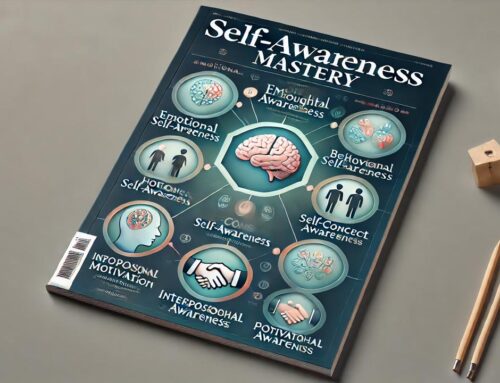Emotional Intelligence for Personal and Business Development
Are you aiming to enhance your self-awareness, improve your relationships, or boost your career? Understanding and developing your EI can be a game-changer. In this outline, we’ll dive into the facets of emotional intelligence, explore its significance in personal growth and business success, and provide you with actionable strategies to harness its power.
What You Will Learn
By the end of this outline, you will:
- Understand the core components of emotional intelligence.
- Recognize the impact of EI on personal development.
- Discover how EI influences business success and leadership.
- Learn practical tips to enhance your emotional intelligence.
Table of Contents
- Understanding Emotional Intelligence
- Emotional Intelligence and Personal Development
- The Role of Emotional Intelligence in Business
- Practical Strategies to Enhance Emotional Intelligence
- Top 5 Frequently Asked Questions
- Final Thoughts
- Sources
Understanding Emotional Intelligence
What is Emotional Intelligence?
Emotional Intelligence, often abbreviated as EI or EQ (Emotional Quotient), is the ability to identify, understand, manage, and utilize emotions effectively. Coined by psychologists Peter Salovey and John D. Mayer, and popularized by Daniel Goleman, EI encompasses a range of skills and behaviors that influence how we perceive and interact with the world.
Components of Emotional Intelligence
EI is typically broken down into five key components:
- Self-Awareness: Recognizing and understanding your own emotions.
- Self-Regulation: Managing your emotions in a healthy way.
- Motivation: Harnessing emotions to pursue goals.
- Empathy: Understanding the emotions of others.
- Social Skills: Building and managing healthy relationships.
These components collectively shape our ability to navigate social complexities, make informed decisions, and maintain mental well-being.
Emotional Intelligence and Personal Development
Self-Awareness and Personal Growth
Self-awareness is the cornerstone of emotional intelligence. By recognizing our emotions and their impact, we can gain deeper insights into our behavior and motivations. This awareness fosters personal growth, as it enables us to identify areas for improvement and set realistic goals. Research indicates that self-aware individuals are more likely to achieve personal success and experience higher levels of happiness.
Emotional Regulation and Well-being
Emotional regulation is the ability to manage and respond to your emotions in a constructive manner. This skill is crucial for maintaining mental well-being and building resilience. Studies show that individuals with high emotional regulation are less likely to experience stress and anxiety, and more likely to enjoy satisfying relationships and a balanced life.
the-role-of-emotional-intelligence-in-business
The Role of Emotional Intelligence in Business
Leadership and Emotional Intelligence
In the business world, EI is a key differentiator for effective leadership. Leaders with high emotional intelligence can inspire and motivate their teams, navigate conflicts with ease, and foster a positive organizational culture. According to a study by TalentSmart, 90% of top performers have high EI, and these leaders contribute significantly to organizational success.
EI in Team Dynamics
Teams with members who possess strong emotional intelligence tend to perform better. EI facilitates effective communication, reduces conflicts, and enhances collaboration. A study by Google, known as Project Aristotle, found that psychological safety, a component of EI, is critical for high-performing teams.
Customer Relations and EI
Emotional intelligence also plays a pivotal role in customer relations. Sales professionals and customer service representatives with high EI can better understand and respond to customer needs, leading to increased customer satisfaction and loyalty. Research by Harvard Business Review suggests that emotionally intelligent companies outperform their peers by 20%.
Practical Strategies to Enhance Emotional Intelligence
Mindfulness Practices
Mindfulness practices, such as meditation and deep-breathing exercises, can enhance self-awareness and emotional regulation. These practices help individuals stay present, reduce stress, and improve emotional control.
Empathy Development Exercises
Developing empathy involves actively listening to others, putting yourself in their shoes, and responding with compassion. Role-playing exercises and empathy training programs can be effective in enhancing this skill.
Effective Communication Techniques
Effective communication is a hallmark of emotional intelligence. Techniques such as active listening, non-verbal communication, and assertiveness training can improve your ability to connect with others and build strong relationships.
Top 5 Frequently Asked Questions
Final Thoughts
The most important takeaway from this exploration of emotional intelligence is its transformative potential. By understanding and developing your emotional intelligence, you can significantly enhance your personal and professional life. EI is not a static trait but a dynamic skill set that can be cultivated with practice and dedication. Whether you’re seeking personal growth, aspiring to lead, or aiming to build stronger relationships, investing in your emotional intelligence is a step toward a more fulfilling and successful life.







Leave A Comment